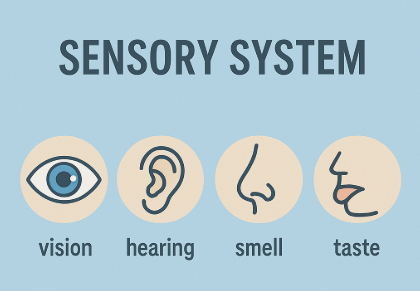Aging is as natural as the passing of time, and it’s something we all experience eventually. It’s not about resisting change, but understanding and managing it.
The process of growing older comes with its own set of physical, sensory, and functional changes. Grasping these transformations is key to maintaining a good quality of life and ensuring independence as much as possible.

Physical changes are often the most noticeable as we age. You might experience decreased bone density or muscle loss, and even joint stiffness can become a daily hurdle. But there’s good news — with the right approach, you can manage these issues. Regular exercise, a balanced diet, and safety modifications at home can make a huge difference.
The sensory and cognitive shifts require attention too. As we get older, vision and hearing might not be as sharp, and memory could feel a bit foggier. Yet, engaging in mental exercises and using assistive devices can help keep your senses intact and your mind agile.
There’s no one-size-fits-all solution, but the aim here is to provide insights and tips that will help manage these age-related changes. It empowers you with actionable knowledge so you can adjust to these transitions smoothly. Moreover, aging is a journey you can navigate with grace, strategy, and support.
Adapting to Physical Transformations | Ensuring Vitality and Health
As we get up there in years, our bodies start to show signs of wear and tear. Therefore, understanding these changes is crucial to mitigating them and maintaining good health. Starting with the musculoskeletal system, aging often leads to:
- Decreased bone density.
- Muscle loss.
- And joint stiffness.
The good news is that staying active can combat these issues effectively. For example, regular weight-bearing and resistance exercises can strengthen bones and muscles. Likewise, incorporating calcium and vitamin D into your diet helps support bone health.
In addition, taking simple safety measures at home — like installing grab bars and using non-slip mats — can go a long way toward preventing falls.
Shifting focus to the cardiovascular system, age might bring about:
- Decreased cardiac output.
- Stiffer blood vessels.
- And a slower heart rate.
Regular check-ups are a must for keeping track of blood pressure and cholesterol levels. A diet low in saturated fats and high in fiber is beneficial to the heart. Similarly, moderate aerobic activities, such as walking or swimming, can keep your cardiovascular system in check.
The respiratory system also experiences changes as reduced lung capacity and slower breathing can become apparent. Adopting breathing exercises, such as deep breathing and pursed-lip breathing techniques, helps enhance lung function.
Avoiding pollutants by ensuring a smoke-free environment is equally vital. Staying physically active with regular walks and light aerobics not only supports lung health but also energizes the spirit.
Taking a proactive approach to physical changes is about integrating small, consistent routines that cater to your body’s needs. With effort and some adjustments, it’s entirely possible to maintain vitality and lead an active lifestyle well into your senior years.

Preserving Senses and Cognitive Abilities | Enhancing Quality of Life
Our senses and cognitive abilities undergo subtle yet significant changes as we grow older. Moreover, tis impacts how we interact with the world around us. These shifts in vision, hearing, taste, smell, touch, and memory can feel daunting, However, with a few practical strategies, their effects can be mitigated considerably.
Vision and hearing are often among the first senses to show signs of aging. Presbyopia, cataracts, and hearing loss might make everyday tasks more challenging. Regular eye and hearing exams are crucial, allowing for early detection and intervention.
Assistive devices like glasses or hearing aids can significantly improve quality of life. Additionally, simple adjustments at home, such as enhanced lighting and minimizing background noise, make environments more accessible and comfortable.
The senses of taste, smell, and touch aren’t immune to aging either. For example, a loss of taste buds might reduce your enjoyment of food. Likewise, diminished smell and tactile sensations affect daily interactions. So, keeping meals interesting with a variety of herbs and spices can enhance flavor. This offers a more satisfying dining experience.
Practicing good oral hygiene supports taste. Additionally, incorporating safety measures, like using thermometers for cooking, avoids accidents due to decreased sensation.
Cognitive changes, such as slower processing speeds and mild forgetfulness, are common but manageable. For example:
- Engaging in mental exercises like puzzles, reading, or social activities keeps the mind sharp.
- Establishing routine daily activities can provide a comforting structure.
- And using reminders, notes, or digital calendars aids memory retention.
Implementing these strategies serves as a coping mechanism. Furthermore, it enhances daily life and maintains independence, enabling seniors to continue thriving as the years roll by.
Comprehensive Health Management | Internal Systems and Wellness
Aging gracefully involves a holistic approach to health. This means taking care of our internal systems just as much as the visible aspects of aging.
The digestive system often slows down, leading to issues like constipation. It is important to maintain proper hydration. Also, a diet rich in fiber from whole grains, fruits, and vegetables can keep things moving smoothly. Including probiotics, like those found in yogurt and fermented foods, helps support gut health, ensuring digestion works efficiently.
The metabolic and endocrine systems, responsible for regulating vital body processes, also experience changes. For instance, a slower metabolism can contribute to weight gain. And, thyroid changes can affect energy levels. Combat this with a balanced diet low in sugar and rich in complex carbohydrates. This, alongside regular physical activity, boosts metabolism.
Moreover, monitoring blood glucose levels through regular check-ups provides insight into your metabolic health. It helps to adjust diets and lifestyles as needed.
The immune system naturally weakens over time, which means disease prevention becomes crucial. Helpful tips include:
- Keeping up with vaccinations, like annual flu shots and pneumonia vaccines, provides essential protection.
- Practicing good hygiene habits, like frequent handwashing, reduces the risk of infections.
- A diet rich in vitamin C and zinc supports immune function. It reinforces your body’s defenses against illness.
Emotional and social well-being play a pivotal role in health maintenance. Therefore, acknowledging the emotional impacts of aging is important, as is encouraging social interactions that combat loneliness. Additionally, participating in hobbies and support groups boosts mental health and provides a sense of purpose.
It is critical to focus on these internal systems and place emphasis on a proactive health strategy. Ultimately, individuals can manage age-related changes effectively while enjoying their golden years with wellness and joy.
Furthermore, assistance from healthcare professionals personalized to individual needs enhances this approach. It ensures the best possible outcomes for aging healthily.
Join the Conversation
We’d love to hear from you! Whether you’re 65 and over, caring for someone who is, or simply preparing for the journey ahead, your experiences and insights matter.
What age-related changes have you noticed or managed?
What strategies or habits have worked well for you or your loved ones?
Share your thoughts, questions, and tips in the comments below. Let’s support and learn from one another on the path to healthier aging.
Veron | Entrepreneur | The Way 4Word Enterprises
